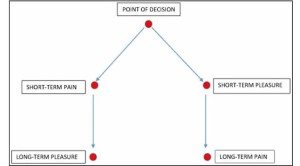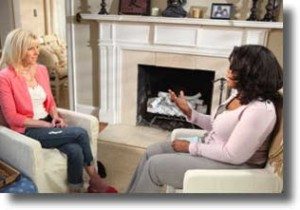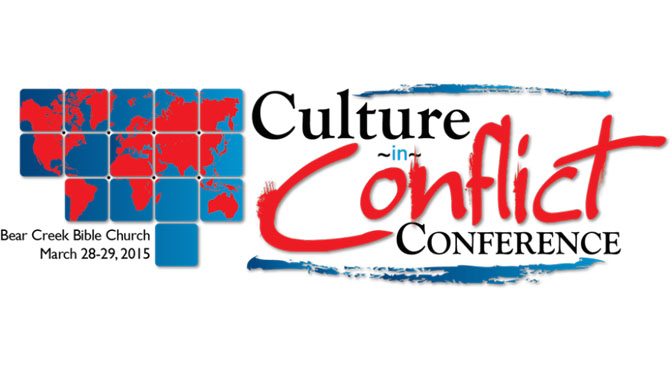 Millions of people have seen the summer blockbuster movie War Room, many of them challenged to be more intentional about prayer. Some have even cleaned out a closet or a corner to make their own War Room.
Millions of people have seen the summer blockbuster movie War Room, many of them challenged to be more intentional about prayer. Some have even cleaned out a closet or a corner to make their own War Room.
But the movie, for all its motivation to experience the power of prayer, did not provide instructions on what and how to pray. Other than eating potato chips in secret!
Prayer is not about sacred words or flowery religious language. Biblical prayer is about talking to God, heart to heart. Here are some suggestions for what to do in the War Room.
Many people have found it helpful to follow the structure of the acronym ACTS: Adoration, Confession, Thanksgiving, Supplication.
Directing our prayers and thoughts in this particular order aligns the heart with God’s heart.
Adoration: This is simply telling God how great He is, focusing on His character and praising Him with words. The book of Psalms is one of the best place to find truths about God and tell Him about it. Several years ago, I went on a treasure hunt as I read through the Bible, drawing a box around every title and name of God I encountered, and writing them down on the blank pages at the back of my Bible. Simply reading some of the titles of God back to Him constitutes adoration. (“You are the King of Kings and Lord of Lords! You are the Bright and Morning Star! You are the Ancient of Days! You are the Creator of the Heavens and the Earth!”)
Confession: Quietly consider what unconfessed sin you need to bring out in to the light. Confession means to agree with God. You may not even feel remorseful about it (yet), but it is still important to agree with God that sin is sin and you were wrong. (“Lord, I confess being short-tempered with my family yesterday. I confess yelling at that driver who cut me off in traffic. I confess going all day without once thinking of You. I was wrong. Please forgive me.”)
Thanksgiving: Consider the things God has given you, the things He has done for you, just in the past 24 hours, and tell Him “thank You.” The discipline of keeping a gratitude journal provides lots of things to give thanks for. The great thing about being mindful of what God is doing so we can give thanks for them, is that it makes us more sensitive to the many ways in which He shows His love and concern for us throughout each day, which kicks up our gratitude meter, which overflows in more and more thanksgiving, which leads to a joyful heart.
Supplication: NOW we get to the part of asking for the things we need or want, or which we would like to see God do in our lives and in the lives of others. It really helps to keep a list of our requests, just like we see in the movie, so we have a record of how and when God answers them.
This is one of the most misunderstood parts of prayer because often, people mistake having faith in the answers they want, with having faith in the God who answers prayer in His time and in His way. It’s fine to ask (not demand, and not presume) for what we want, but it’s important not to have unrealistic expectations of getting everything we ask for like a spoiled little kid. (This is one of the reasons people lose heart and can lose their faith—they aren’t trusting the God who sees the big picture and knows what is good for us and what isn’t, they are looking for the answers to their prayers on a timeline usually faster than the one God is on.)
What should we pray for?
Our daily needs (see also: the Lord’s prayer, “give us this day our daily bread,” Matthew 6:11), financial provision (“your Father knows what you need before you ask Him,” Matthew 6:8), relationships (“it is not good for man to be alone,” Genesis 2:18), peace in our relationships (“Peace I leave with you; My peace I give to you,” John 14:27) . . . whatever comes to mind.
But we get a head start when we pray God’s word. This is great War Room material! Consider praying for one’s spouse (even a future spouse!) or children or friends the great prayers recorded by the apostle Paul.
“Lord I ask that _____ may be filled with the knowledge of Your will in all spiritual wisdom and understanding, so that he will walk in a manner worthy of You, to please You in all respects, bearing fruit in every good work and increasing in the knowledge of You; strengthened with all power, according to Your glorious might, for the attaining of all steadfastness and patience; joyously giving thanks to You, Father, who have qualified us to share in the inheritance of the saints in light.” (Colossians 1:9-12)
“I pray that You would grant ____, according to the riches of Your glory, to be strengthened with power through Your Spirit in the inner man, so that Christ may dwell in his heart through faith; and that he, being rooted and grounded in love, may be able to comprehend with all the saints what is the breadth and length and height and depth, and to know the love of Christ which surpasses knowledge, that he may be filled up to all the fullness of You.” (Ephesians 3:16-19)
Consider praying a Psalm, such as Psalm 1:1-3—
“I pray that _____ would be blessed, that she would not walk in the counsel of the wicked,
Nor stand in the path of sinners, nor sit in the seat of scoffers!
I pray her delight would be in the law of the Lord,
And in Your law she would meditate day and night.
I pray she would be like a tree firmly planted by streams of water,
Which yields its fruit in its season and its leaf does not wither;
And in whatever he does, she would prosper.”
Spiritual warfare was one of the elements of the War Room movie, and prayer is how it is battled and won. For the simplest form of it, we can look to how Jesus prayed for His disciples in John 17. He asked His Father:
• To keep His disciples safe from the evil one (v. 15)
• To set them apart in the truth (v. 17)
• For oneness (v. 21). The context was oneness within the Body of Christ, the church, but this is a powerful request to pray for our marriages as well.
I am also intrigued by His prayer in v. 23, “You have loved them just as You have loved Me.” Most people have no idea of just how much and how great the Father’s love is for us—He loves us the exact same way and the exact same amount as He loves His Son! I love to pray that God will allow my loved one to grasp this truth, which corresponds to the Ephesians 3 prayer above.
Jesus also prayed for Peter before his spectacular, epic failure when he denied his Lord, that his faith would not [completely and utterly] fail, and that after he turned back, that he would strengthen his brothers. Praying for our loved ones’ faith not to fail, and for God to redeem and use any lapses and stumbles, is a powerful way to pray for them.
An important part of War Room prayer strategy, just as in physical war, is to remove obstacles to effectiveness. In Mark 11:25, Jesus said, “”Whenever you stand praying, forgive, if you have anything against anyone, so that your Father who is in heaven will also forgive you your transgressions.” An important thing to do in anyone’s War Room is to examine our hearts for any unforgiveness and deal with it.
Well, I think that’s a good start on your War Room! Would you like to add any suggestions? Comment below!
This blog post originally appeared at
blogs.bible.org/engage/sue_bohlin/ive_got_a_war_room–now_what_do_i_do
on Sept. 22, 2015

 Oprah: When this is all said and done and we look back on this time of you, Rielle Hunter, the mistress and all of that, what is it you want people to really understand about what has happened here?
Oprah: When this is all said and done and we look back on this time of you, Rielle Hunter, the mistress and all of that, what is it you want people to really understand about what has happened here?